If Michanda Myles could choose one word to describe her life, it would be endurance.
As a triathlete, endurance is the skill that gets her to the finish line. It’s built over hundreds if not thousands of hours of training in the three key sports of swimming, cycling, and running.
But Michanda also has honed in on her skill of endurance in her professional career.
As a model, that means enduring through a stream of “no’s” to make it to some incredible opportunities; as a podcaster, it’s the consistency of releasing content to build an audience of inspired athletes; and as a sports announcer for triathlon and endurance events, it’s the feat of navigating through a career path where there’s little, if any, roadmap on how or where to get started or continue to grow.
“When you don’t have the roadmap in front of you, you are the one creating it, which is really amazing,” Michanda says. “It’s a lonely road at times, but people are listening and people are noticing, even if they don’t outwardly say it. When you’re the first to break into an industry, you give other people the confidence to do it after you.”
“I couldn’t have the belief I have without believing that God is with me. It gets so hard to believe, especially when you’re receiving no’s constantly. But I believe in who I am, too, and know that I have a gift. I haven’t always believed in myself. My confidence waivers even though I am confident. But at my core, it's knowing that there's somebody greater on the inside than I can believe in myself. That keeps me going and gives me the drive I need.”
While Michanda is constantly on the go, one thing she’s focused on this year is finding a little bit more balance with work, training and recovery, along with
Read on to learn more about Michanda and how she inspires others in so many different ways.

***
Tell me a little bit about yourself and how fitness and sports came into your life.
I’ve been active from a young age, whether it was being on the swim team when I was younger, or, as I matured into high school, getting forced to play basketball because of my height, and being on the track team.
Originally, I just wanted to throw the shot put and discus, but I was made to run, and that’s where I started to hate running because I was forced to do it. In college, I marched in the Florida A&M Marching 100, so that was physical activity in a different way.
As an adult, I ran my first 5K – the Atlanta Women’s 5K in 2008. That started my journey of being active as an adult when things really started getting serious. From there, I ran the Peachtree Road Race, and in 2009, I was on my first tri-relay team. From that point on, I always wanted to do a triathlon. 2024 is my 10th year in tri, so that’s really exciting!
I’ve just been active, and it’s changed my life. I didn’t grow up in a home where physical activity was a priority. I think my parents occasionally played tennis; my dad rode his bike. But we weren’t really forced into an active lifestyle. It was an opportunity to engage in activities to keep us busy and be in group sports, but not as a way to contribute to health.
In 2014 [when I found triathlon], as a person who’s always struggled with weight, I saw the benefits of how it made me feel, and I didn’t want to lose that feeling. Although I wasn’t able to do a lot of triathlons because it’s a very resource-heavy sport, I did what I could to stay active when I could only do one triathlon race a year.
Even to this day, I enjoy the act of swimming, biking and running. I just picked up roller skating – that to me is an alternative to running because it’s a low-impact sport that uses the same muscles. So I’ve now made being active a part of my lifestyle. I can now pass that down to the next generation as active as a lifestyle versus just a destination.
As far as who am I? Do we ever really know who we really are? I think who we are is always evolving. But today, who you get to talk to is: I’m a black woman who is fearfully and wonderfully made. I have the gift of speaking, which allows me to use my talent to be a race announcer and emcee at events. It allows me to speak to people and encourage them. I model. I am a musician. I am an athlete. I’m a sister. I’m a daughter. I’m a Southern girl at heart but an everyday city woman. So that’s who I am today. I am a full-figure boss babe, embracing all of my curves. I’m a child of God. That’s who I am, and I just get to do the other things that are added benefits of that.

How did you get into triathlon, and what made you want to continue competing in the sport?
The thing about triathlon that keeps me here is there is always an area to improve. It’s hard to say I’ve arrived. I think triathlon gives me the opportunity to focus on different areas. When I first started,I just focused on finishing, and then working at each distance. Now I know I can do the distances, so my focus is on particular legs that will give me a better advantage, like the bike and run portion.
That’s where I am now: Continuing to improve while embracing the sport in the season I’m in at the time I’m racing.
What’s your favorite tri distance?
I teeter between the Olympic and half (70.3 miles). I’ll say the “olympic half” – can I make up my own distance?
It’s long enough to get in a groove but mentally challenging enough to keep you thinking, problem-solving and improving. Whereas the sprint, it’s like, before you get into it, it’s done.
I’m a back-of-the-pack athlete, so it’s feeling like you’re struggling for 2 hours and then that’s it. For the Olympic distance, I’m a swimmer, so I love a longer swim. With the swim, I get the opportunity to get my mind mentally engaged before going on the bike and the other challenges on the opposite end.
I don’t love running, but that’s at the end. I have to take the good with the bad, and I think the longer distance gives me time to warm up, and then I’m able to transition to figure out whatever it is I need to do for the back part of it.

You’re also a sports announcer, which is really cool! How did you get into the world of sports announcing?
I do triathlon, road races, crit races – those are the main areas. I got into cycling announcing last year, which is really exhilarating!
So, let’s back up – in 2014, I was at TriRock Philadelphia, which was my first triathlon. There was a woman there named Anne Wesling. She was the hype girl, and she was wearing a skirt made of swim caps. Unfortunately, I had never seen anybody of color in that role.
So it got me thinking – I can do that. I speak well, I have energy. I wanted to do it but didn’t believe that I could do it because I hadn’t seen anyone like me in that role or anything similar. I didn’t know how to get started and at the time, no one was willing to share how. Announcing is one of those coveted areas, and it’s challenging to get people to open up and share details. There weren’t a lot of people willing to help me.
In 2017, I did my first 70.3 distance course with Kinetic Multisport, and the announcer, who is now my mentor, Ken Berger, was talking to my teammates because I was still out on the course and one of the last people out there. He was randomly talking to them about wanting to bring in more women and people of color. One of my teammates came to me while in the hot tub recovering and told me to talk to him.
Of course, after doing a long-distance race, you don't settle down and sleep right away. I was looking at my results and found out I placed in my division. I was like, woah, I have to go back and get my award. The gentleman I talked to gave me his card. He said: I don’t have more races for you, but I’ll look out for you in 2018. Send me an email with your information.
So I immediately sent him an email, and he called me that week to see if I could come up to the SavageMan triathlon race. I didn’t really have a good car to drive in the mountains. That particular part of Maryland wasn’t necessarily friendly to people of color. This could be an epic fail. But my instincts said to take the risk and go – you don’t know what will come out of it.
I went. He said later that if I could make it up to SavageMan, he would know half of what he needed to know about me. He set me up on the hardest part of SavageMan: The Wall. [Athletes who clear this incredibly steep section and complete the race get their names etched on a brick that’s then placed there for the rest of time.]
I believe it was an angel who told me to say, “Number XX, you just mulled that wall!” I don’t use language like that usually. But Ken looked at me and he said, That’s right, he mulled that wall!"
Afterward, he invited me to come to some other local races that same year. Since then, I have been announcing with him, and Kinetic Multisport has been a launching pad for me. I believe in what they do, and I think that’s important because they allowed me the opportunity to be an announcer. I appreciate their stance on being inclusive and embracing diversity. I’ll always be grateful for that.

You have so much going on. How do you find time for it all, and how do you keep balance in your life so that it doesn’t get overwhelming?
Nothing is ever easy. It goes with the saying: Prioritize the things that are important to you. I still have a paper planner. That paper planner allows me to see things in a tangible way: Do I really have the capacity to do this during this time?
I remember when I was training for my first IRONMAN distance. That was the first time of understanding that training is like a part-time job. I was traveling doing age-group nationals and having to work out while announcing. I had to get up early to make that happen. I had to prioritize and really schedule workouts and schedule announcing around races.
That goes back to my mother. My mom thinks I do the most. I’m like, you’re the reason I do the most! I think the things you do when you were a child really set you up for the life you’re gonna have as an adult. My mom had us in so many activities because she didn’t want us to get in trouble. Not that the community I grew up in was bad, she just didn’t even want the opportunity to arise to think we would get in trouble.
We would have swim camps and day camps. In high school, I was a youth advocate for our teen health department. I was on the newspaper’s teen board. I was the president of the student council. I was in sports and in the band, and I had to maintain my schoolwork. Was I an A student? No, but I was an A/B student.
At first, I thought, dang, I don’t have straight A’s, but I was doing all these things. How do you have straight A’s? There are people who do it. But what I realized was that I still got scholarships to college because they saw me as being well-balanced and well-rounded. I learned to embrace my well-roundedness at that age.
Even in college, I was in the Marching 100 at Florida A&M. We are the best marching band in the world. I struggled my freshman year because we practiced more than our football team! We had to be good. We practiced until we got it right. My mom said my grades have to come up or I’m coming back to Augusta. So of course I got it together.
When I look back at some of the experiences I had … My first IRONMAN attempt, I finished in 17 hours and 17 minutes. I got super sick because of sea nettle stings. I’m one of those people that if at first I don’t succeed, as Aaliyah said, I have to dust myself off and try again. That has been a pattern in my life. I may not get it the very first time, but once I get it, I got it, and I will succeed if I don’t give up. When putting together Tri Beginner’s Luck, that’s all I want people to do is try and if you don’t get it, try again. Just don’t give up on it.

With the Tri Beginner’s Luck, what do you like most about sharing the community stories through that medium?
In 2020, we had an amazing opportunity to sit at home, get really deep into our thoughts, and whatever emerged from that emerged. I was still modeling, but we couldn’t work for six months.
One day, I was sitting on my floor, and a thought came to me to start a podcast. I didn’t even know the first thing about starting something like that, but the thought wouldn’t leave me. It just kept stirring. So I thought about what the podcast would be about, and I thought about my journey, and I said, why don’t you tell stories about how people got started, that would encourage other people to try and to keep going. I thought about my journey of being a triathlete and an entrepreneur, where you don’t have the luxury of knowing when you’re getting paid. I often didn’t have a lot of resources.
I had the idea to work with beginners. It was risky. Fast forward to the beginning of the year 2021. I was asked to be one of the moderators at Endurance Exchange in 2021. In the USA Triathlon state of the Sport address, the CEO at the time, Rocky Harris, said if we’re going to grow this sport, we have to focus on beginners.
For me, it was like BAM, YES! That was the confirmation I needed. Everyone wants to focus on the top. But what about the people who have everyday stories? Everyone has a first-time story. So that’s how we started. I would cold-call people to ask them if they wanted to be on the podcast. This was before anyone knew what I was doing. Maria Simone , who has been there from the beginning, stepped up to help with her contacts to ensure we had guests.
After making the decision to start the podcast,my brother died in March 2021. I had never experienced the type of pain I experienced, and I didn’t know how I would be able to do a podcast. Then, I was also hit with a problem in my apartment where mold and mice became an issue. It was not habitable. I ended up having to live in multiple places.
If you see the opening of my podcast, that’s important to me because throughout everything that happened, I took my equipment everywhere and popped up in sites to do my podcast. When I was hurting most, I still pushed through. Nobody really knew. But I’m proud as I look back on these last two years of what I was able to accomplish, and that in itself is endurance.
Each year, I’ve grown, and gotten more people to say yes, I'd love to be on your podcast. People have come up to me at races and said they listen to it during trainer rides. Who can’t get inspired by Jason West telling his story of rice and beans, or Heather Jackson telling her story about being a teacher and realizing she was a beast who was good at triathlon, or Taylor Knibb, who had some pretty bad races that nobody knew about before her breakout year in 2021 when she went to the Olympics, or Bill Shufelt, who started Athletic Brewing. What about your beginners who share how they’ve raced with helmets on the run leg, learned how to swim to do their first tri, or lost weight to overcome and complete their first race? It’s all inspiring.
We all have a story, and all of our stories matter. Telling stories from multiple vantage points, whether it’s a beginner or a professional – everyone has the same thread. They have a starting story, and the struggles they had in that first race – to me, that is important.

What is some of the feedback you’ve gotten from listeners?
I think I’m still in the space where people are observers – they’re watching and don’t necessarily feel comfortable sharing a lot until they see me in person. When they see me in person, it’s like, Oh my gosh, thank you so much.
I’ve gotten a few emails from people that say they’re going to try triathlon. A person came up to me at the Hall of Fame dinner this past year and said what I am doing is changing lives. You can’t see it right now, he said, but you’re changing people, and I just want to encourage you not to give up and to keep going.
We have a little over 12,000 downloads in 2.5 years. That’s about 3,000 per month. When I look at the stats, we have people listening all over the world in countries I wouldn’t even think people would be listening in. And it’s growing. I’m glad I’m having these opportunities to rough it out now.
That’s my destiny. It’s my journey. I believe when you’re the first to break into an industry, you give other people the confidence to do it after you. I know that my road and journey is mine based off my lived experiences. When you don’t have the roadmap in front of you, you are the one creating it, which is really amazing. It’s a lonely road at times, but people are listening and people are noticing, even if they don’t outwardly say it.
I think what’s next is to be more assertive and seek sponsorships. As a podcaster who isn’t backed by brands yet, it gets difficult at times. In fact, it’s hard. Often I want to quit. Like, am I really making a difference?
I have a great team, partners who helps me with the podcast and I’m grateful. I have Maria, who helps with editing and writing. Sarah has been helping with graphics and social media. They have been my rocks. It also helps when people are encouraging, it gives me the drive to keep going.

What have been the greatest challenges of navigating a career in modeling?
I started modeling in 2010, taking some photos. People kept telling me I should be a model. This was before full-figure modeling was popular. I moved to Washington, DC, in 2011, and I told myself that if I got into a modeling agency, then that meant I’m supposed to be modeling because, again, I had to believe. I didn’t have a road map or many people to talk to. Back in those days, the jobs were few and far between. People were not open to sharing their experiences, especially if you were in the same category as them.
I got an agency and was immediately booked with Macy’s. I did my first job with Macy’s, and then from there, it got quiet. People make modeling seem so glamorous, but it really is a dog-eat-dog type of world where you may not get picked for something, and as gorgeous as you think you are, you just might not be the right fit.
Later that summer, I broadened the scope a bit through my agent in Philadelphia, and then I became one of Nordstrom’s main plus model. Nordstrom’s will have me go to multiple stores where I was a runway and beauty model for them. I just kept doing jobs. I’ve worked with IKEA and LG, which is coming out mid-January. That showed me I’m still in this game!
I was modeling with QVC for five years doing on-air modeling, where it takes a special person to be able to sell clothes to women from a TV screen. I did a lot of their print modeling too. It took five years of “not now” from QVC before I got the opportunity. That’s what the industry is. It feels like rejection, and although it’s not a yes, it’s just “not right now” … but when it was my time at QVC, I was the new plus model and immediately went to a five-hour talking show, so I guess it was worth the wait! I felt like it was my time.
When I left QVC, I left because it was time for me to do something different, and I needed a break. I wanted to be an on-air host, and in order for me to do that, I would have to be off-air for six months. The day I submitted my notice to be off the air was the day I received a call from USA Triathlon to be an announcer at age group nationals. That, to me, was the confirmation I needed.
To me, that’s God saying she is ready! I have the skills, the ability, and the gift. I couldn’t have the belief I have without believing that God is with me. It gets so hard to believe, especially when you’re receiving no’s constantly. But I believe in who I am, too, and know that I have a gift. I haven’t always believed in myself. My confidence waivers even though I am confident. But at my core, it's knowing that there's somebody greater on the inside than I can believe in myself. That keeps me going and gives me the drive I need.

How did you find Athletic Brewing Company and the ambassador program?
I found out about Athletic Brewing through a former [Athletic] employee. He would always have Athletic around at different local events. At first, it was just a cold drink, a good NA beer, but then it also helped me when I didn’t feel like drinking alcohol. It provided a way for me to be in the community, have a can in a hand, and not have the lingering after-effects.
Athletic Brewing has been an important part of my life, giving me that variety and the option to choose differently and to drink differently. I think that’s important. Whenever I go to restaurants now, I’m always looking for Athletic. I get so excited! I feel like I’ve been a part of the Athletic family from the beginning. It’s cool to try something different and not get judged for it.
What are some of your proudest achievements?
My proudest achievement is that I will always try. Even if I fail, I will try again. That’s my proudest achievement. I know we think about the awards and the accolades, but you don’t get those awards and accolades if you don’t try.
Do you have any bucket list races, events, or achievements you'd like to attain one day?
I want to do a bike ride across the U.S. I think that would be something cool to do. I would probably like to hike Mount Everest or something silly like that. I hear Challenge Roth is pretty cool – it’s a long-distance triathlon equivalent to IRONMAN in the U.S. Perhaps at some point, Ironman Lake Placid, and I’d like to go after the world's major marathons. I didn’t know this was a thing – I didn’t grow up in environments where people participated in that, but coming into this community, you see a lot of people doing it. So that would be something I would desire to do.

What is your favorite recovery food?
F2C Nutrition has a recovery drink, Rehab 3:1, so I like that and Pharma-Pure in a smoothie. For food, I’m into peas. I have this thing with a bowl of peas and rainbow cauliflower. It is so freaking good. I eat that because it’s a quick recovery, vegetables and protein. If I don't do that, then I overreact and do pizza and stuff that’s not good.
What do you like to do on rest days?
Nothing! I traditionally haven’t had a lot of downtime, but I’ve now incorporated rest heavily. So on those days, I do things that bring me joy. Skating is my new hobby, so I’ve been skating on rest days, and also doing stretching and yoga to keep my body happy.

What gets you up and out of bed every day?
That I get to get up and out of bed every day and tackle new opportunities I may be faced with. Not everybody gets to get up. When you wake up in the morning, it’s a feeling like, “Oh, thank you for breath in my body. I get to do this day.” It’s an honor to be able to grace the day head-on. Just knowing that I still have work to do, people to connect with, knowing I can brighten someone’s day by just saying good morning. That gets me out of bed. Opportunities that I get to do all the things that I get to do, practicing gratitude. It’s like: I get to do it again. So, life gets me out of bed. The ability that I get to live gets me out of bed.
Triathlon is a gift. Having the ability to move – to get out there and do something – it is truly a gift. Even though we might complain, we always have to remember that we get to do this; we have chosen to do this.
What does living a life #FitForAllTimes mean to you?
I think I’ve experienced that this year. Living a life fit for all times means doing what you can when you can to stay active, stay engaged, and stay fit. Sometimes that includes resting and recovery and honoring your body where it is in the moment, not judging where you are in the cycle of a particular season. It’s honoring where you are. Some seasons will be great seasons of high endurance and high capacity. Some might be lower. Honor where you are in that pendulum. Remain as active as you can with what you’re given in that season.
If you're interested in joining the Athletic Brewing ambassador program, visit our Ambassador Community Page and sign up to be notified when applications open!


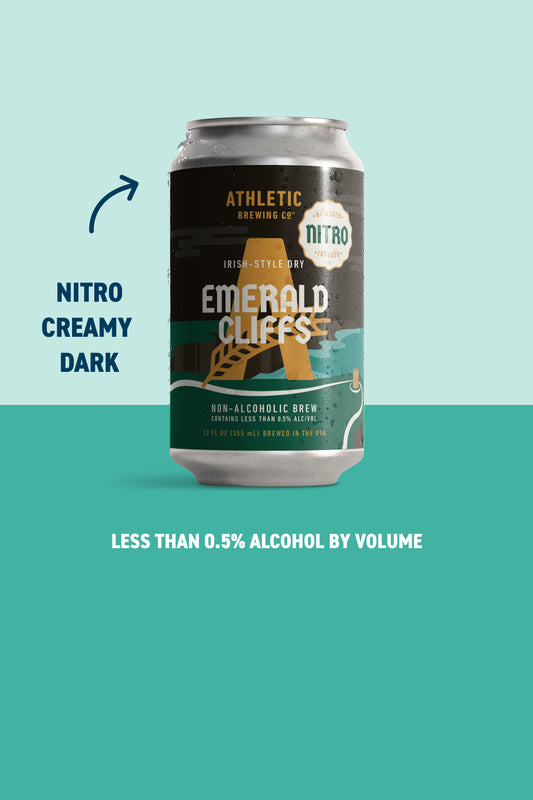

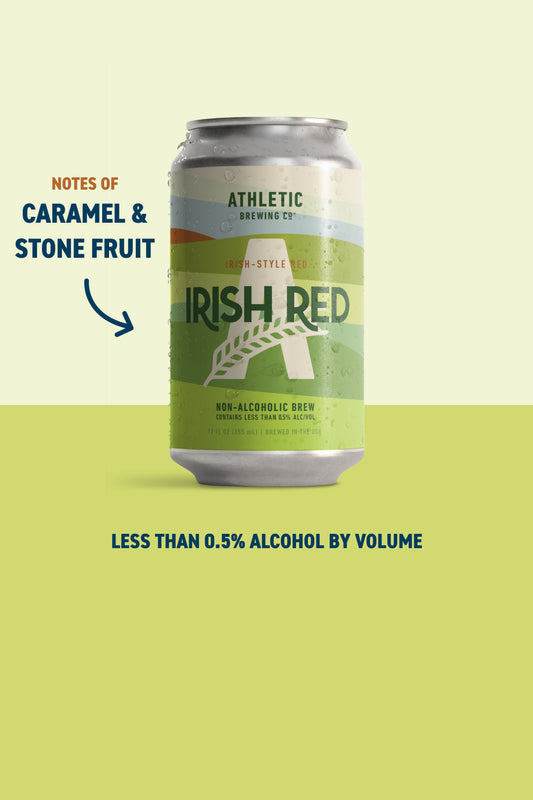


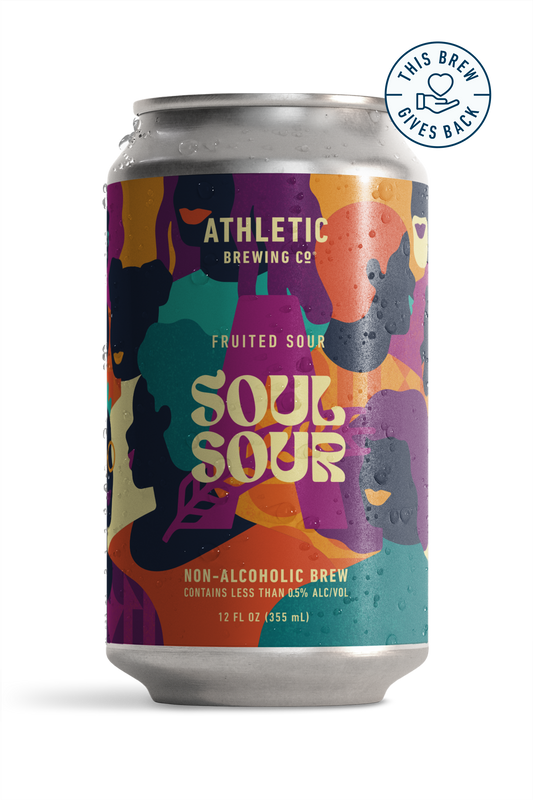
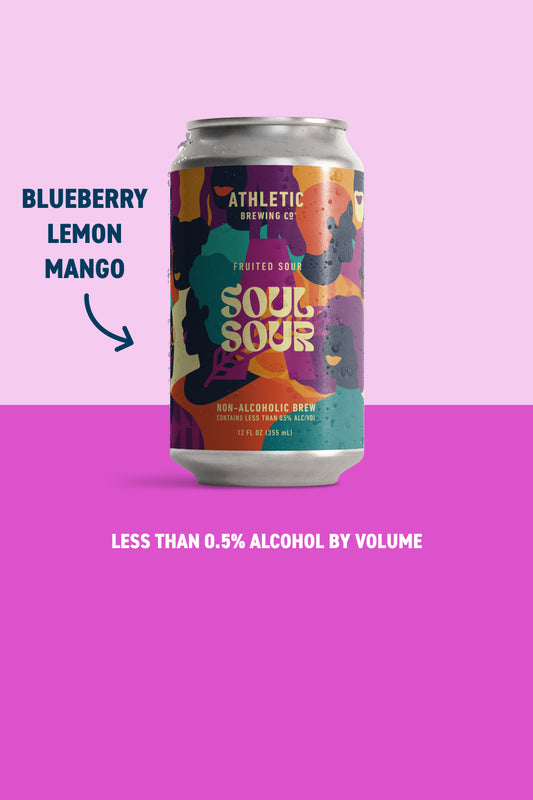
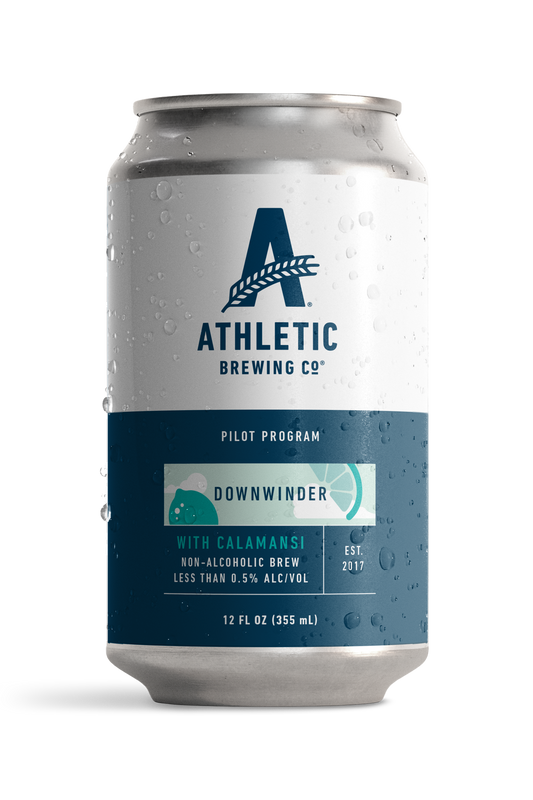


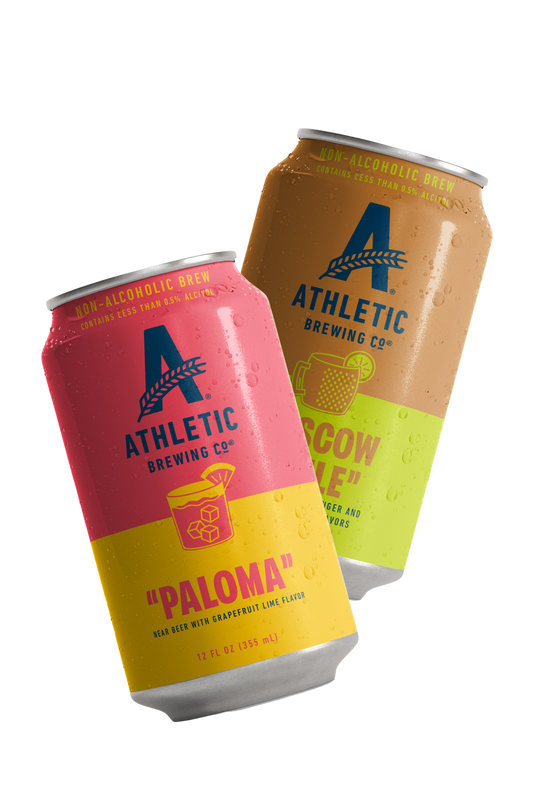
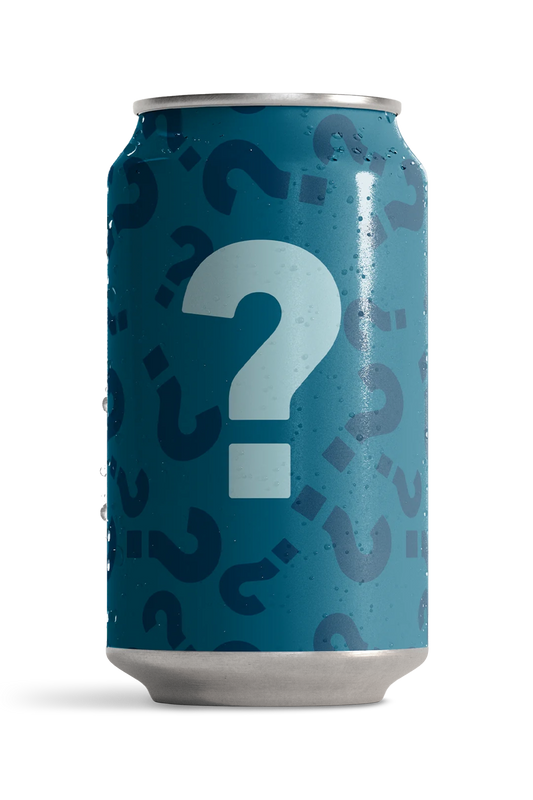
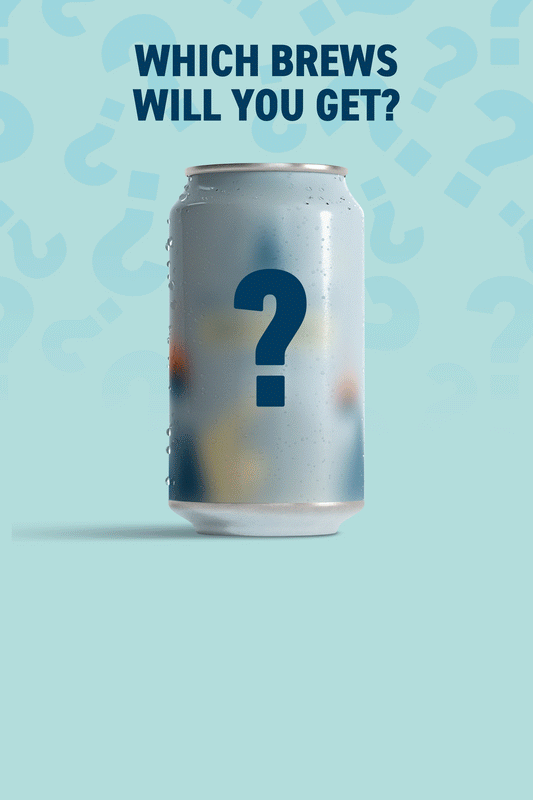
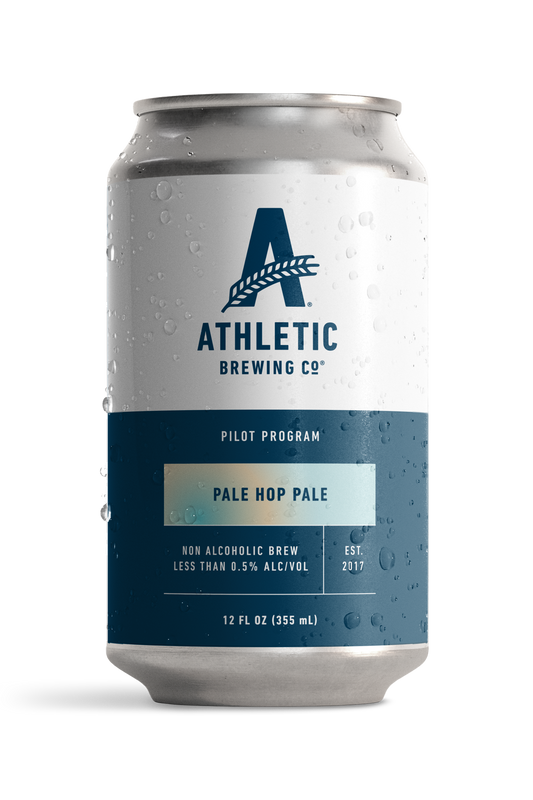
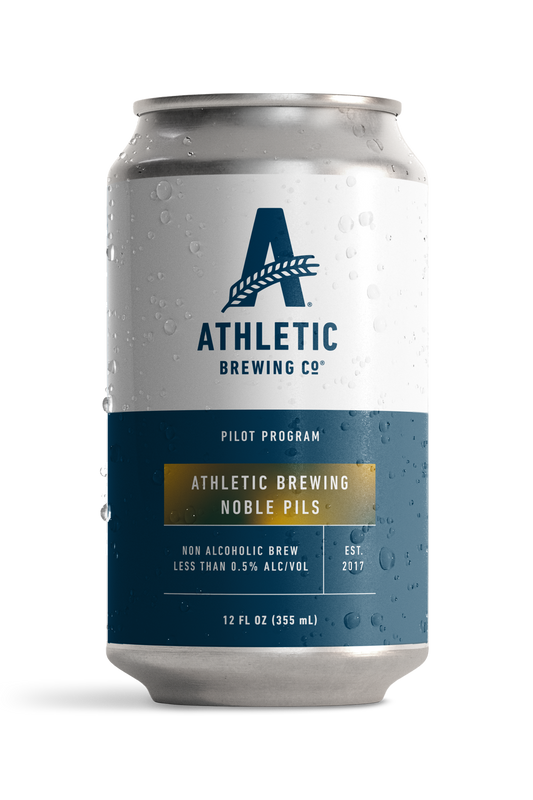

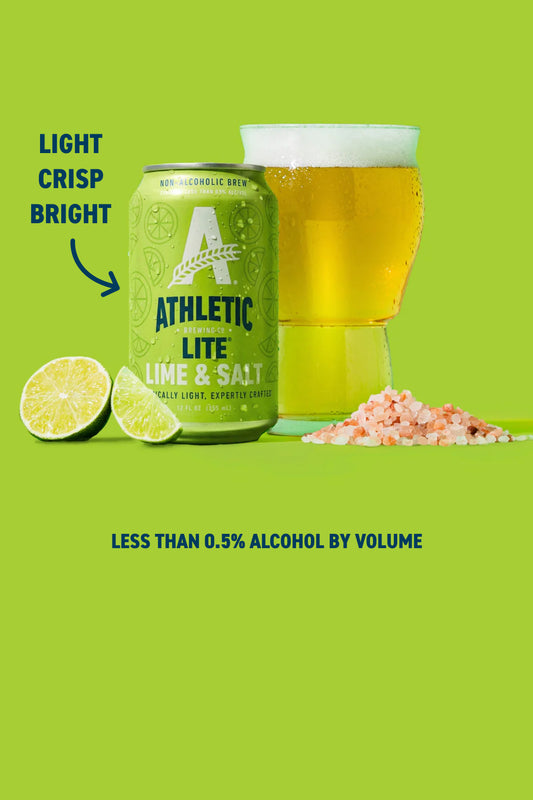
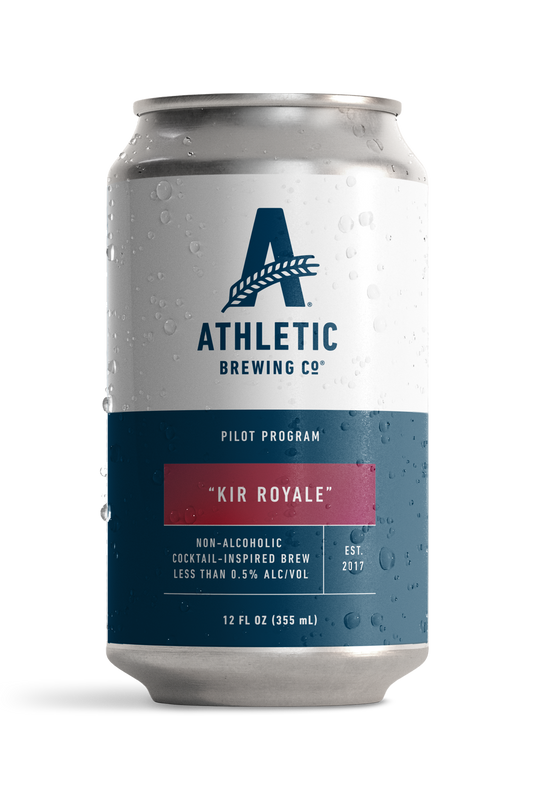

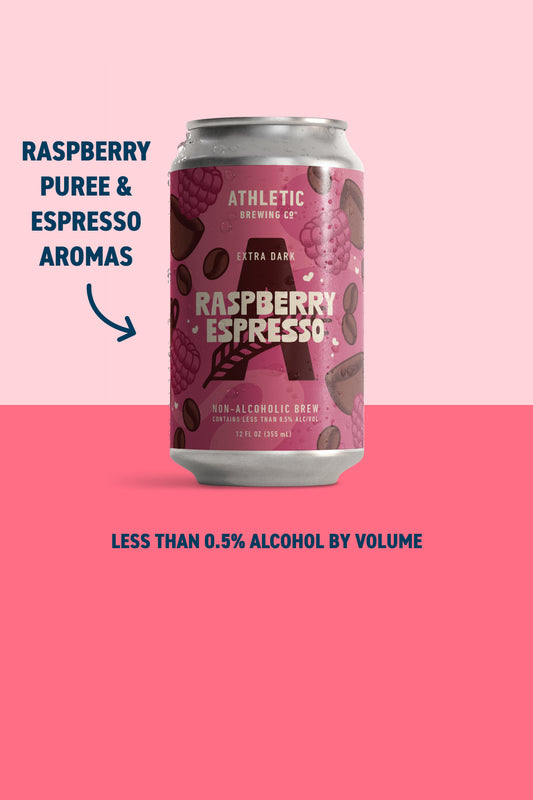
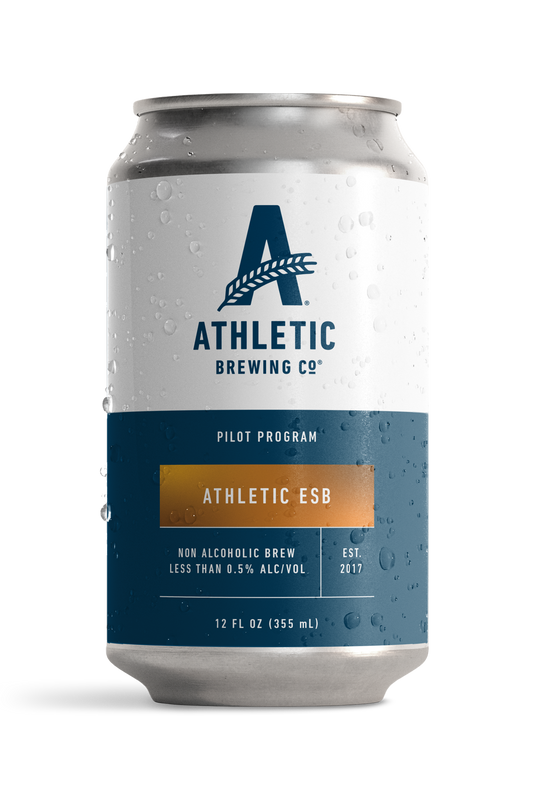
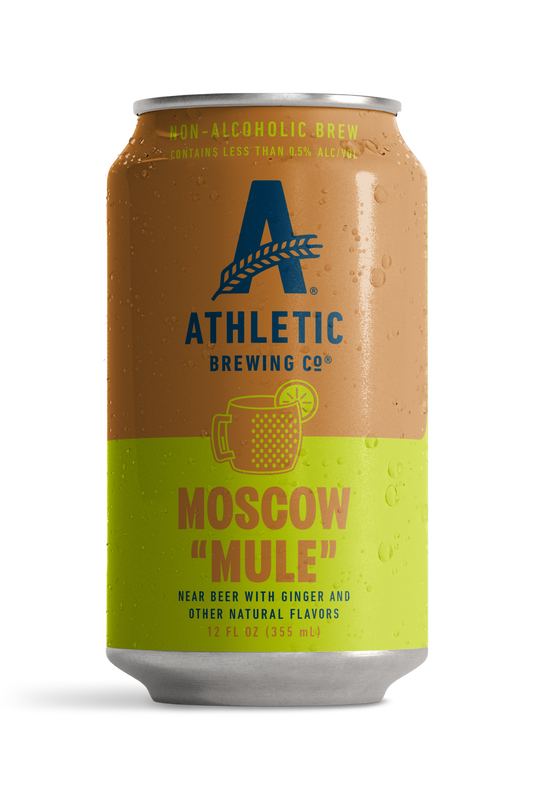
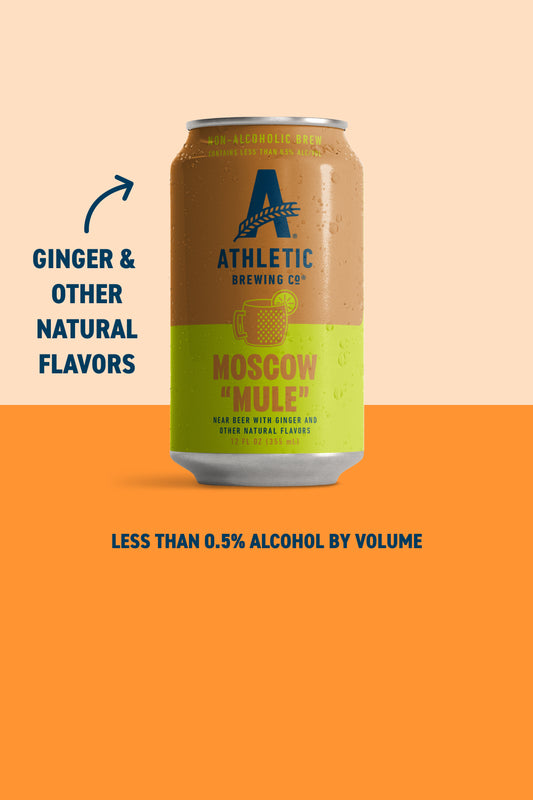
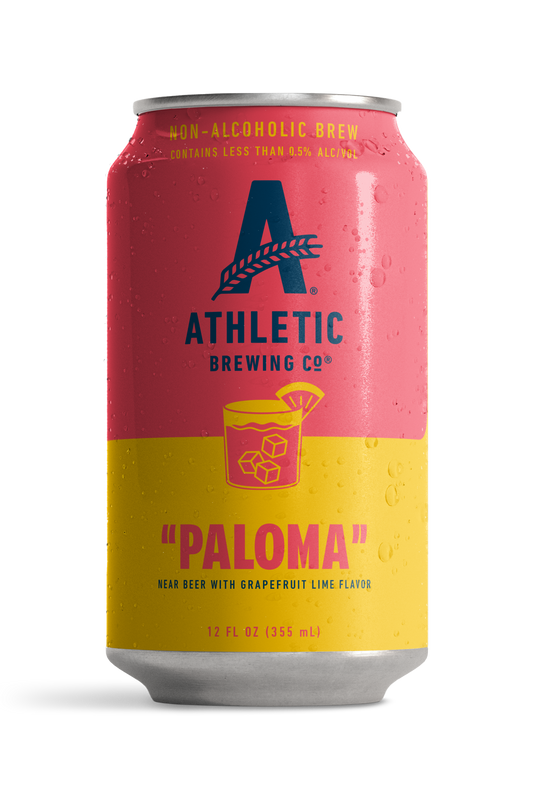
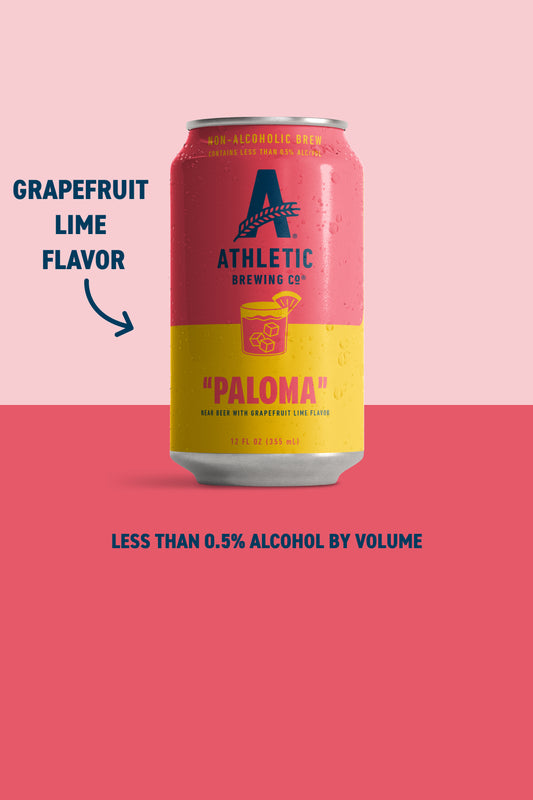









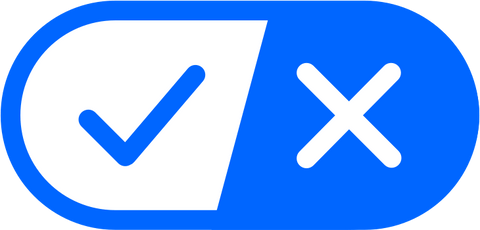 Your Privacy Choices
Your Privacy Choices







